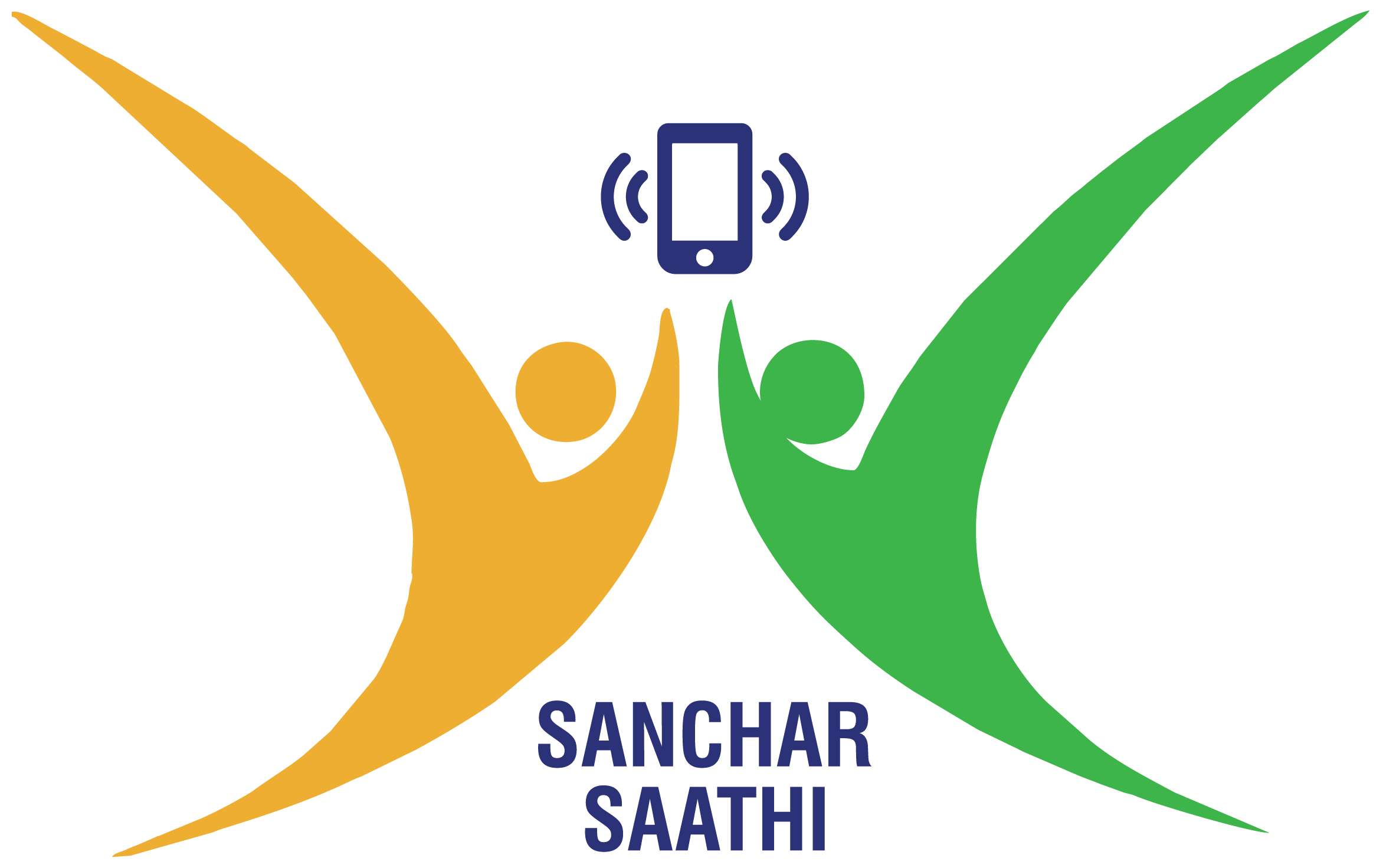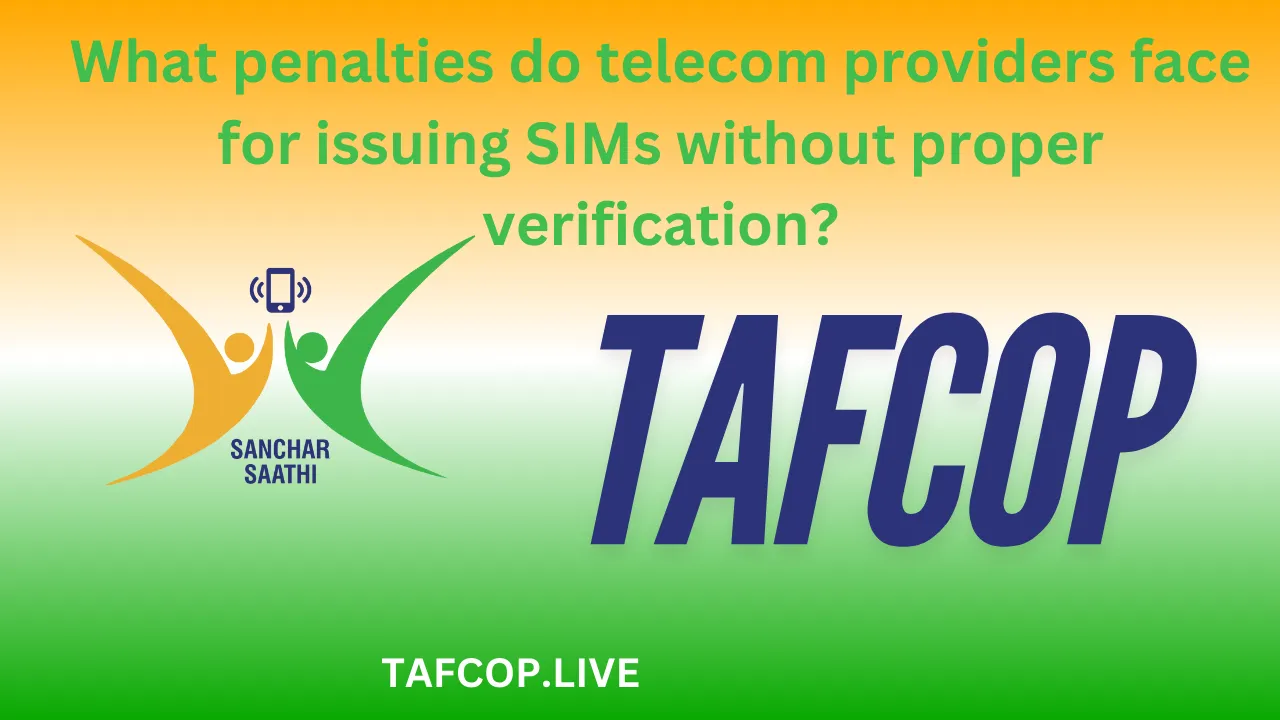In a world where your phone number is practically your identity, the security of SIM cards is no joke. Imagine someone getting a SIM card in your name without your knowledge—sounds like a plot from a spy movie, right? Unfortunately, this isn’t fiction. Telecom providers in India are legally bound to verify the identity of every individual before issuing a SIM card. But what happens when they don’t follow the rules? Let’s dive into the penalties telecom providers face for issuing SIMs without proper verification and why this matters to you.
What penalties do telecom providers face for issuing SIMs without proper verification?(Quick Answer)
Telecom providers in India face heavy fines, license suspension, or even cancellation if they issue SIM cards without proper verification. The Department of Telecommunications (DoT) enforces strict rules to ensure customer identity verification, and violations can lead to penalties ranging from ₹50,000 to ₹50 lakh per violation, depending on the severity.
Why Is Proper SIM Verification Important?
Before we get into the penalties, let’s talk about why proper SIM verification is such a big deal. A SIM card isn’t just a piece of plastic—it’s your gateway to communication, banking, and even government services. If a telecom provider issues a SIM without verifying the user’s identity, it can lead to fraud, identity theft, and even terrorism-related activities.
For example, in 2022, Indian authorities uncovered a racket where thousands of SIM cards were issued using fake documents. These SIMs were later used in scams, phishing attacks, and even coordinated criminal activities. Proper verification acts as the first line of defense against such misuse.
What Are the Legal Requirements for SIM Verification in India?
The Department of Telecommunications (DoT) has laid down strict guidelines for telecom providers to follow when issuing SIM cards. These rules are designed to ensure that every SIM card is linked to a verified individual. Here’s what the law says:
- Aadhaar-Based e-KYC: Telecom providers must use Aadhaar-based e-KYC (Electronic Know Your Customer) to verify the identity of the customer. This involves biometric authentication, making it nearly impossible to fake.
- Document Verification: If Aadhaar isn’t available, providers must verify other government-issued IDs like passports, driving licenses, or voter IDs.
- Photograph and Biometric Data: A photograph and biometric data (like fingerprints) of the customer must be captured during the verification process.
The exact answer: Telecom providers must follow Aadhaar-based e-KYC or document verification to issue SIM cards, ensuring every customer’s identity is verified.
What Penalties Do Telecom Providers Face for Non-Compliance?
Now, let’s get to the heart of the matter—what happens if telecom providers don’t follow these rules? The penalties are severe and can have a significant impact on their business. Here’s a breakdown:
1. Heavy Fines
Telecom providers can be slapped with hefty fines for each violation. The fines range from ₹50,000 to ₹50 lakh, depending on the number of SIMs issued without verification and the severity of the breach.
Example: In 2021, a major telecom operator was fined ₹1 crore for issuing over 1,000 SIM cards without proper verification. This fine was imposed after an investigation revealed that the company had bypassed the e-KYC process.
2. License Suspension or Cancellation
In extreme cases, the DoT can suspend or even cancel the license of a telecom provider. This means the company can no longer operate in India, which is a massive blow to their business.
Example: In 2020, a smaller telecom operator had its license suspended for three months after it was found guilty of issuing SIMs to unauthorized individuals.
3. Legal Action Against Employees
It’s not just the company that faces penalties—individual employees involved in the violation can also be held accountable. They may face criminal charges, including fines and imprisonment.
Example: In one case, a store manager was arrested for issuing SIMs using fake documents. He was charged under the Indian Penal Code (IPC) and faced up to three years in prison.
The exact answer: Telecom providers face heavy fines, license suspension, or cancellation, and employees may face criminal charges for issuing SIMs without proper verification.
How Do These Penalties Protect Consumers?
You might be wondering, “How does punishing telecom providers help me?” Well, these penalties act as a deterrent, ensuring that telecom companies take SIM verification seriously. When providers follow the rules, it reduces the risk of:
- Identity Theft: Your personal information is less likely to be misused.
- Financial Fraud: Scammers can’t easily get SIMs in your name to carry out banking fraud.
- National Security Threats: Proper verification helps authorities track and prevent illegal activities.
The exact answer: Penalties ensure telecom providers follow verification rules, protecting consumers from identity theft, financial fraud, and national security threats.
What Can Consumers Do to Ensure Their SIM Is Verified Properly?
While the onus is on telecom providers to follow the rules, consumers can also take steps to protect themselves. Here’s what you can do:
- Check Your SIM Details: Dial <code>#106#</code>* to verify if your SIM is linked to your correct identity.
- Report Suspicious Activity: If you suspect a SIM has been issued in your name without your knowledge, report it to your telecom provider and the DoT immediately.
- Keep Your Documents Safe: Never share your Aadhaar or other IDs with unauthorized individuals.
The exact answer: Consumers should check their SIM details, report suspicious activity, and keep their documents safe to ensure proper verification.
FAQs About SIM Verification Penalties
1. What is the fine for issuing a SIM without verification?
The fine ranges from ₹50,000 to ₹50 lakh per violation, depending on the severity.
2. Can a telecom provider lose its license for non-compliance?
Yes, the DoT can suspend or cancel a telecom provider’s license for repeated violations.
3. What happens to employees involved in illegal SIM issuance?
Employees may face criminal charges, including fines and imprisonment.
4. How can I check if my SIM is verified?
Dial <code>#106#</code>* to verify your SIM details.
Conclusion
In a country as vast and diverse as India, the security of SIM cards is crucial to protecting individuals and maintaining national security. The penalties for telecom providers who fail to verify SIMs properly are strict—and for good reason. From hefty fines to license cancellations, these measures ensure that telecom companies take their responsibilities seriously. As consumers, it’s also our duty to stay vigilant and report any suspicious activity. After all, a secure SIM is the first step toward a safer digital life.
“A SIM card is more than just a number—it’s your identity. Protect it like your life depends on it.”

